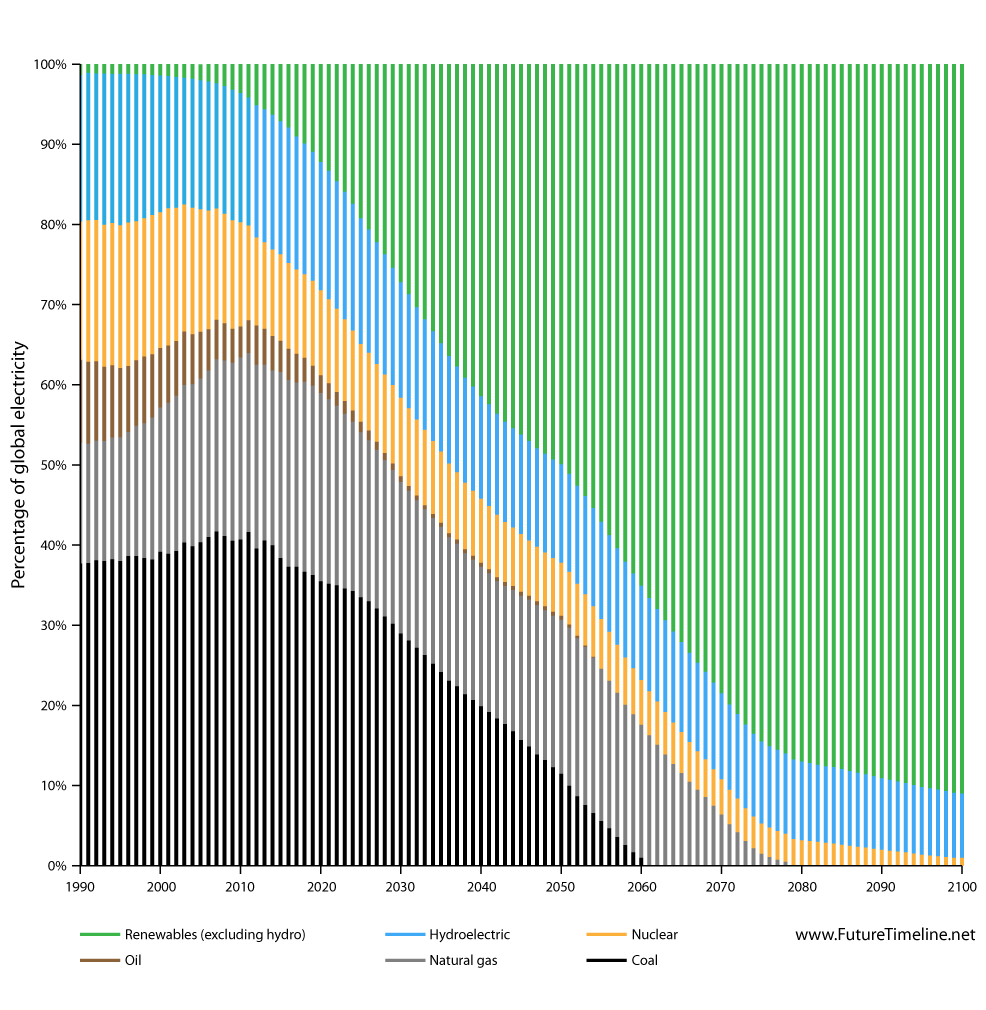
World electricity sources, 1990-2100 This graph shows the progress in clean energy from 1990 to the present day, all the way through to 2100. It suggests that fossil fuels could be obsolete for generating electricity by 2078. Indeed, we can see that fossil fuels may have already peaked, with a turning point reached in the early 2010s. Oil is no longer a significant source for electricity and is likely to disappear from the mix entirely by the 2050s. Coal has recently peaked and is now entering a period of terminal decline that is likely to see its phasing out by 2060 (this is the worldwide date; richer nations may achieve it sooner than poorer ones). Natural gas will maintain a significant percentage share for much of this century, before collapsing and petering out in the 2070s. The big story is obviously with renewables. Future projections indicate that they will achieve a 50% share by 2050 – even as worldwide demand for electricity soars by 62%. This may even be a conservative estimate if their high growth rate can be sustained beyond 2040. However, most technology adoption follows an S-curve, so we are sticking with a "safer" prediction here. Nuclear energy peaked in the 1990s and is likely to continue a slow decline for the foreseeable future – reaching barely 1% by 2100. However, it may see a renaissance if you include fusion as "nuclear". Lastly, hydroelectric will continue to grow and develop, but as a percentage share it will fall from 16% today, to around 12% by 2050 and 8% by the end of the century.
Sources: World Development Indicators, World Bank: The World Will Get Half Its Power From Wind, Solar by 2050, Bloomberg:
Posted: 19th November 2019. Last updated: 19th November 2019.
If you enjoy our content, please consider sharing it:
|







